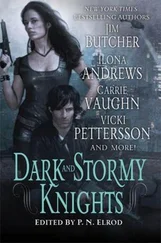Jeanine bit her lip. “That’s quite a job,” she said. “A wedding dress.”
“It was some old silk Martha Jane’s grandfather got in New Orleans,” said Alice. “When he went down there and shot somebody and went bankrupt. Now she’s getting married to Tim Joplin and they got a use for it. After all these years.”
The John Deere exploded in backfires and smoke when Abel started it up. Jeanine rode on the drawbar behind him, holding to the edge of the perforated seat until she could understand the gears and the line to the lever that lowered and raised the cultivator blades. The clutch was operated by hand and there were two brakes, one for each foot and each wheel. It was confusing. Then Jeanine climbed into the seat and started it up and jammed the gearshift down. The tractor charged forward into the Crowsers’ garden fence. She forgot where all the levers were and so roared on and churned up two plowed rows and took down the six-foot deer fence with the fender while nails shrieked as they were ripped out of the posts. Alice put a dishtowel up to her face and turned back into the house.
“Never mind, I’ll fix it,” said Abel. “Back her up.”
Jeanine wrapped her scarf carefully around her neck and shoved the left-hand stick shift backward. There were two stick shifts. She had to remember which was the reverse and what foot went with it. She stared at her feet for a minute as to fix in her mind which was on the right brake and the left brake. She backed up. Abel attached the cultivator to the drawbar and she made it out to the road.
She drove it at ten miles an hour from the Crowsers’ place to their own, the cultivator on behind, carried six inches above the road. The great steel wheels banged along on their rigid cleats. She wanted to wave at people passing by, to be jaunty and lighthearted and important, a slight girl in charge of a huge machine, but then they might want to stop and give her advice. So she ignored passing cars and gripped the bucking wheel and crashed through the front yard, through the gate at the sugar barn and then started up the hill toward the orchard.
The brochures from Texas A &M said the grass and weeds would drink up all the nutrients from the soil and she would have nothing but sour peaches the size of marbles if she didn’t rip them up and that was what she was going to do, starting today. Big sweet lamps of fruit would shine from the limbs in August. Wasn’t that what they had longed for all those years in the oil field towns?
She let go the line that dropped the cultivator blades but it was hung up on something she couldn’t see. She got down, climbing over all the levers and gears. She bent over the square links of the chain drive. The engine was still running and she suddenly found she couldn’t move her head. Both ends of her wool scarf were caught in the chain drive.
She fought with the scarf with both hands and the John Deere started to move forward into the peach trees. Jeanine was dragged along with it. The square links drew the woolen fabric in their teeth in a slow, regular progression as if it were something very good to eat and they were going to eat it all and her head along with it. The tractor lumbered forward and caught one wheel on a twisted small peach tree and tore the limbs with a shrieking sound. It spun around to the left and stopped and then tore on again. Jeanine began to choke and her head was drawn farther down until it looked as if she were bowing to the cultivator blades and she realized she was going to die in the most horrible way right here in the peach orchard, or at least lose some portion of her face or her scalp. With the cold noise of the gears in her face she came to the edge of a bottomless knowledge of how people could be torn into pieces. The chain chewed and spun and finally ripped the scarf in half. She tore loose and flung herself backward with all her strength.
Bright round spots drifted through the black peach trees. They blanked out her vision wherever she turned, but she reached with one hand to where she knew the spark lever was and she turned it down and the engine died.
Jeanine waited until the luminous round spots diminished into red sparks and faded. She sat for a long time on the steel seat with her hands around her throbbing neck. Water trembled in minute drops on the points of the graveyard fence and on the bayonets of the sotol. She felt very small under the awning of the universe; her life was a pale and insignificant spark, easily extinguished. She swallowed over and over again, trying to open her throat. I must have something to do in life, she thought. And the Lord said, Jeanine, build me a peach orchard ten cubits by fifteen cubits. Then she wiped the cold sweat from her eyes and turned the spark lever until the engine started up again and shook all the metal of the engine block and the tall exhaust pipe. She was taken unaware by an overwhelming feeling of gratitude. It was like a warm flood and it flushed the blood into her face and limbs again. Jeanine slowly began to drag the clawed cultivator through the beautiful bare trees even though her hands were shaking. She must never let her mother know this had happened.
That night she ran through the cold hall with the torn woolen muffler in her hands. She could see the marks on her neck in the old mirror with the beveled edges that took up the light in strange prisms all along its edges, as if saying that beyond the ordinary light of day there were other worlds. Behind her, the front double doors shut tight against the weather leaked a suffused gray luminosity into the hall. Her Tolliver grandparents sat beside each other in their ornate frame and stared down into her very thoughts. It’s all right, they said, we’ve seen worse.
ELIZABETH, LILLIAN, AND Violet stood wrapped in their winter coats, in their worn and carefully polished shoes, among the crowd of people who came to watch the driller and his machine arrive. They were in a hayfield that had been sheared off to stubble on a farm north of Mineral Wells. They were at the edge of the Jacksboro field. Elizabeth kicked at the stubble. The farmer hadn’t got much in the haying. He and his wife stood on their back porch, looking down the gravel road as if they were watching for mounted enemies or the Second Coming.
The three women stood close together against the wind. Elizabeth felt very widowed, like something unshelled. But inside her there must be some small riverine pearl, however misshapen. She was comforted, standing close to Lillian and Violet. They could all throw their money away together. It was something to keep her mind off things.
The ancient steam boiler sat waiting for the drilling rig. Its chimney rose twenty feet into the air and stared with a metallic hauteur out over the stubble. Nearby were three storage tanks and a separator and a string of used pipe stacked neatly with sawmill sidings as headers. The crowd waited like a theater audience. Cars were parked all around the windmill. Milton Brown scrambled up a pile of dirt to see better and began to scribble notes. He had a photographer with him, but the photographer did not open up his camera.
The promoter was a tall, square-shouldered man in a worn gabardine suit from the early 1930s. He wore a wide tie patterned with art deco zigzags. He had a thick head of curly hair and a broad white smile. He waved his hands at the crowd, he paced up and down on the uneven ground.
“You see!” he said. “I told you he would make it.”
In the distance a convoy of trucks approached, raising a cloud of pale dust. At the head of the convoy a flatbed truck carried the drilling rig. It seemed like something from the Iron Age. Its ancient wooden Sampson post waved back and forth as if it were poorly secured. The enormous bull wheel wobbled on its axle. It was made of wood and shod with steel. Most of the metal parts of the machine were rusted, and what was not rusted was covered with flaking darkred paint, and to power this unsteady rig they had the prehistoric steam boiler. Behind the flatbed was an overloaded 1918 Nash two-ton truck, and following the Nash was a Model A. In this manner apparently the rig and the trucks and the men had traveled all the way from Ruston, Louisiana, to Central Texas towing this parachute of dust behind them over every mile.
Читать дальше












